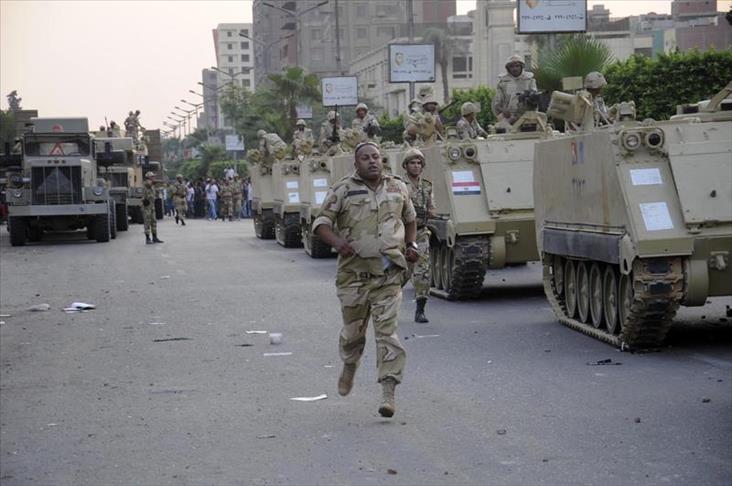
ANKARA
Egypt's first democratically elected leader Mohamed Morsi, who has came to the power after 30 years of Hosni Mubarak's iron rule, was overthrown by military coup before he had the time to salvage his country's sluggish economy, according to analysts.
They also said domestic and foreign capital owners have supported the military coup in Egypt staged under the leadership of Egyptian military chief and Defense Minister General Abdul Fatah al-Sisi.
According to AA's analysis of IMF data, Egypt's economy grew 1.7% in 2011 under Morsi, it would continue to grow 2% in 2013, 3.2% in 2014, and 5.5% in 2015.
There were optimistic estimations for Egypt, one of the leading economies in the Arab world, that export and import indicators would have proved better than they had in Mubarak's term.
According to IMF's estimations, import would rise 3% and export would shrink 6.7% in 2012; and both exports and imports would increase 2.2% and 3.3% in 2013, 3.3% and 4.9% in 2014, and 6.9% and 7% in 2015, respectively.
Egypt's GDP, which was $188 billion in 2009, reached $256.7 billion in 2012. And it was estimated to stand at $264.7 billion in this year, and $268.8 billion in 2014, and $285.7 billion.
- Domestic and foreign capital owners supported the military coup
Increase in Egypt's stock exchange after the military coup has led analysts to think that both foreign and domestic capital owners might have supported the military coup and they even were ready for it.
In the aftermath of the military coup, Egypt's stock exchange rapidly rose by 7.56%. And prior to the military coup, between June 30 and July 4, stocks saw a 5% rise even with heightened expectations that the army might takeover control.
The trading volume has shrunk 31.2% in the first 5 months of this year compared to the same term last year, and it was also down by 43.6% in May compared to the beginning of the year. However, the trading volume has rose 6.2% in the month prior to the coup.
Arif Unver, president of Turkey's Association of Capital Market Investors, pointed out that such an extraordinary regime shift should have wreaked havoc on an economy in another country under normal conditions.
"The rise in Egypt's stock exchange offers an interesting picture. The total value of Egypt's stock exchange is $55 billion according to data of the World Federation of Exchanges (WFE); on the other hand, Egypt's GDP is around $250 billion. From this point of view, the upward move in Egypt's stock exchange, couldn't have benefited all Egyptians. A stock exchange, which corresponds to 20% of the GDP, does not reflect the general reaction in a country, but the reaction of domestic capital owners, backed up by foreign capital owners. To say both domestic and foreign capital owners supported the military coup in Egypt, is not false. Although not a global economic power, Egypt is important for the Muslim world and international politics."
Prof. Erdal Karagol from Turkish think-tank Foundation for Political, Economic and Social Research believes that Egypt's ousted president was denied the time he needed to make structural reforms to fix his country's economy.
"Egypt did need time to solve its structural problems like unemployment, inflation, and current account deficit. Egypt was about to pen a stand-by agreement with IMF. If the economic process wasn't cut off by the military coup, the structural problems could have been solved," said Karagol.
Anadolu Agency website contains only a portion of the news stories offered to subscribers in the AA News Broadcasting System (HAS), and in summarized form. Please contact us for subscription options.

